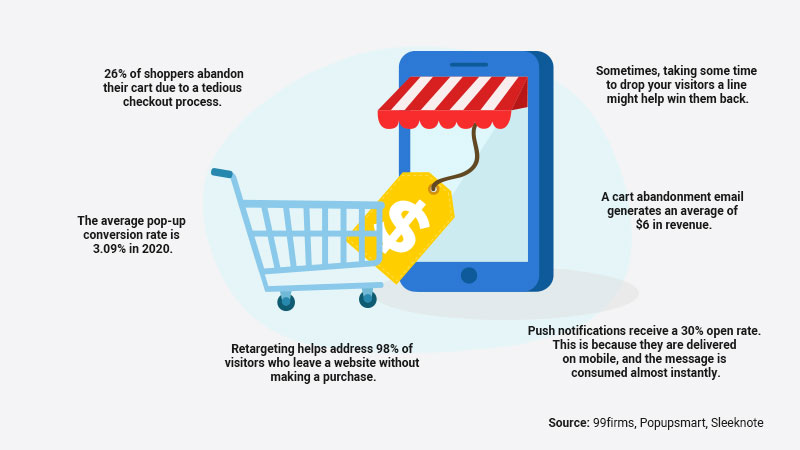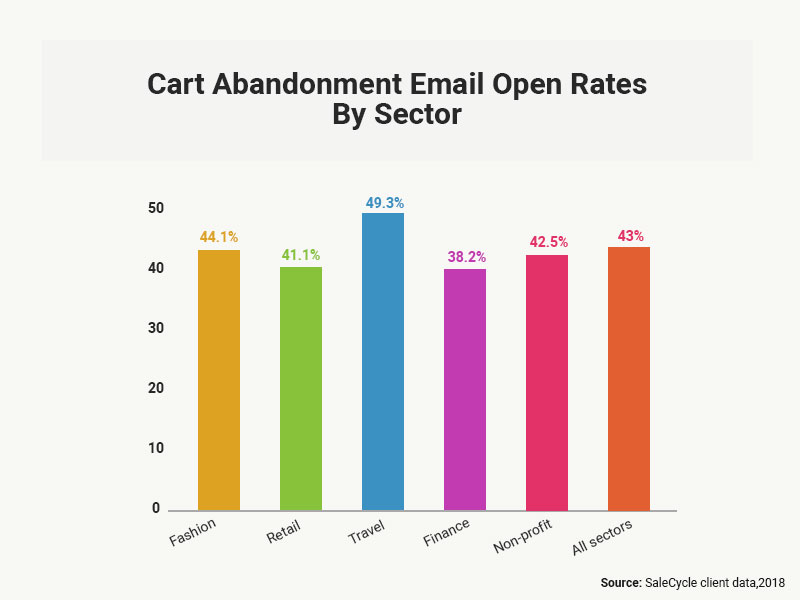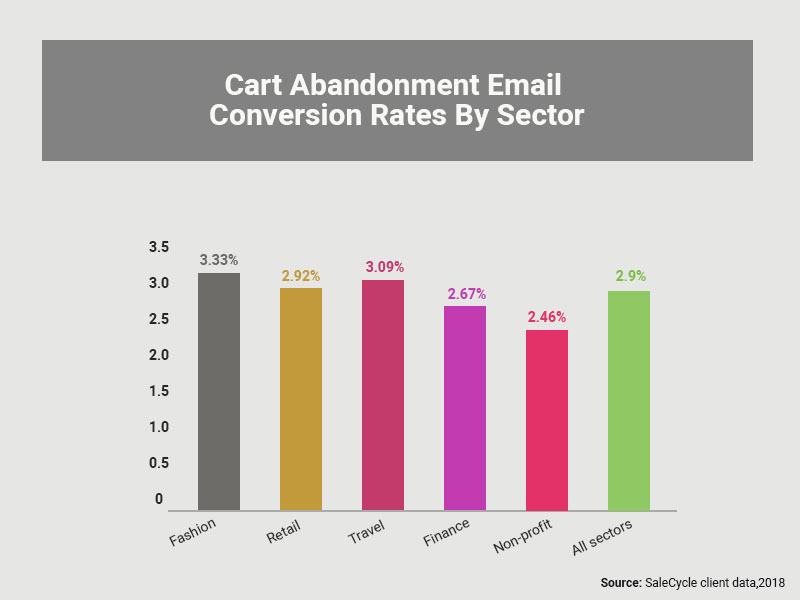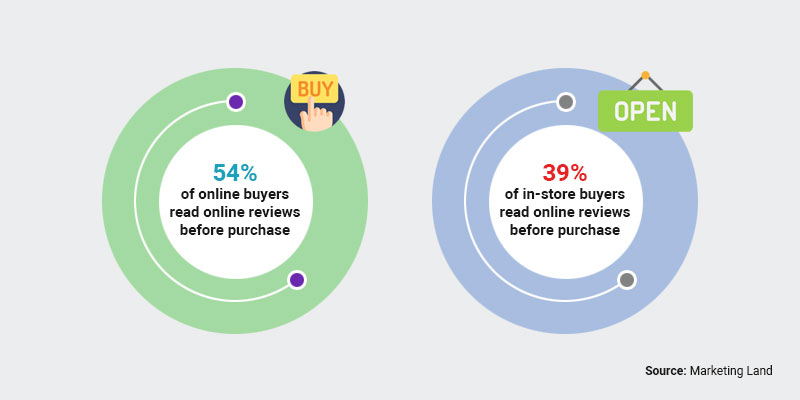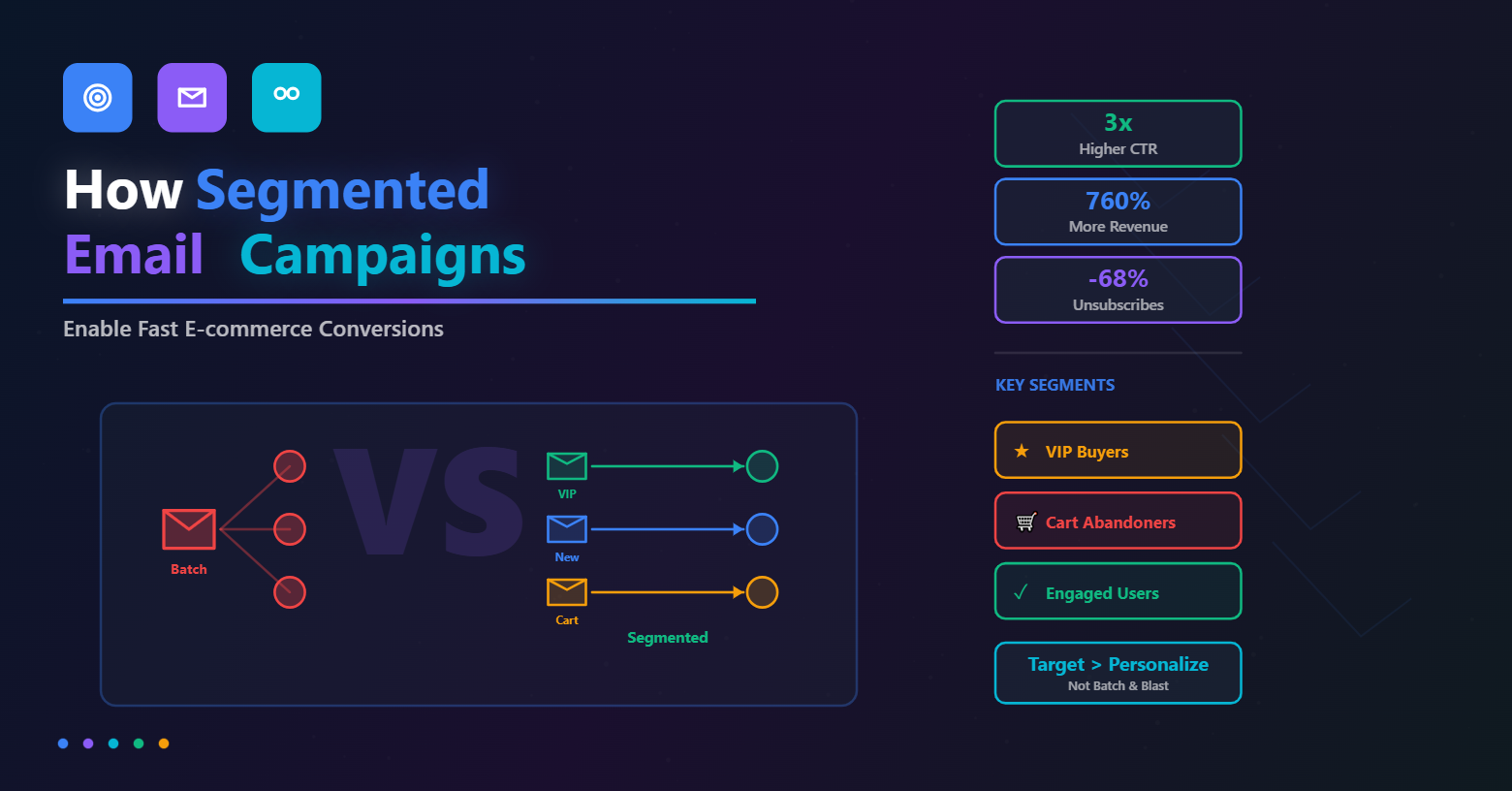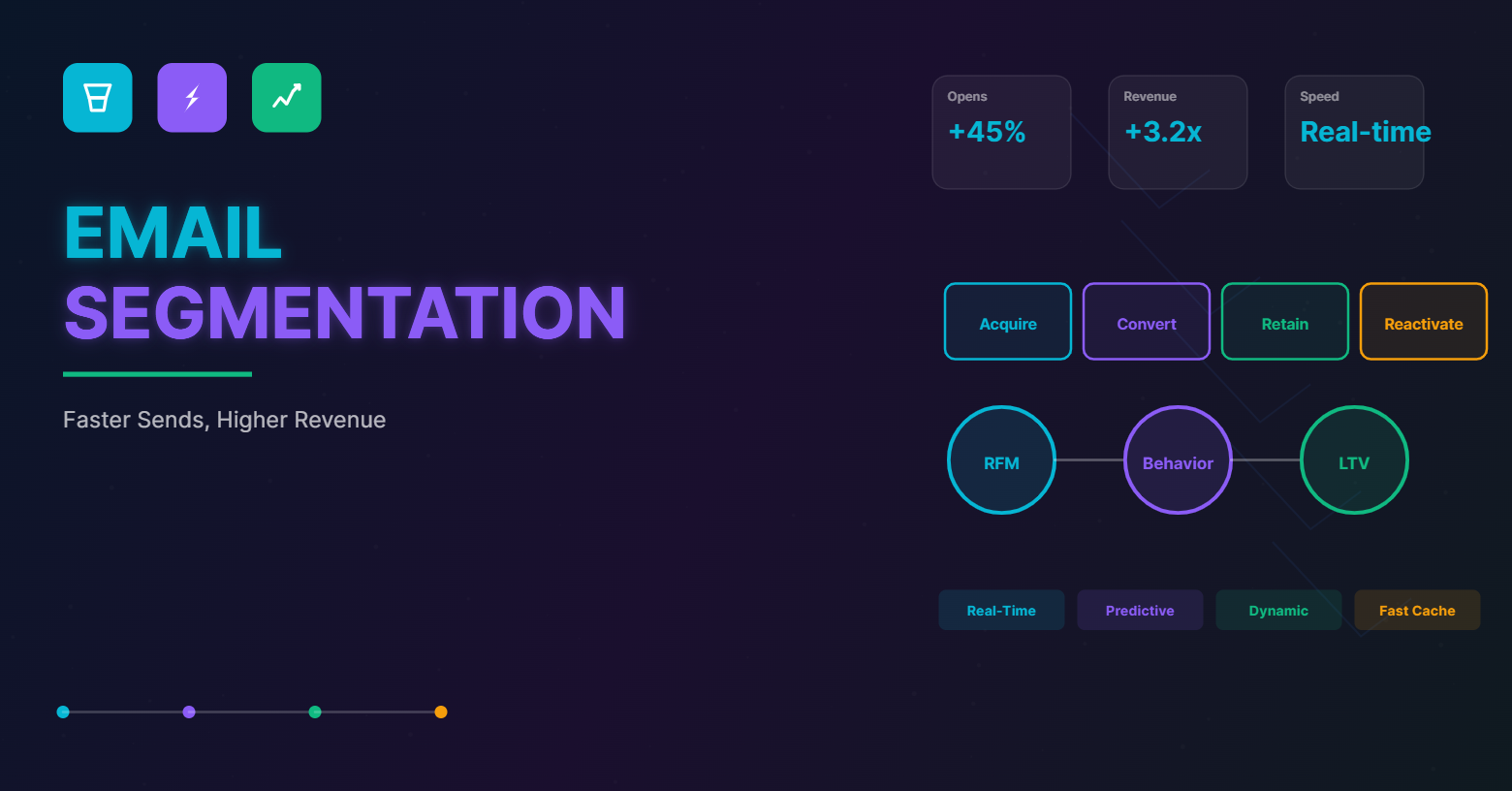The most powerful success mantra is nothing other than the lessons we learn along the way. All these years, we’ve worked with hundreds of eCommerce brands, analyzed even more—and learned several crucial lessons that will benefit the modern retailers’ persistent efforts to excel in email marketing. For instance, lately, we’ve noticed a massive change in the way customers react to the promotional emails—especially the cart recovery emails. We ran hypothesis-driven tests across multiple eCommerce industries and compiled the data to understand how online retailers handle cart abandonment and what modern shoppers actually expect from them. Here’s is what we are going to discuss in this article:
- Most Effective Channels to Reduce Cart Abandonment
- 7 Important facts we learned about cart abandonment
- You will never find out the exact reason why people abandon their carts
- Segmented and triggered cart recovery email campaigns perform better
- Only 14% of eCommerce stores send cart recovery emails
- 54% of consumers prefer reading reviews or comparing prices before purchasing
- 80% of brands that send offers include it in the first or second email
- Almost no one escalates their offer during the sequence
- Marketing doesn’t end with a purchase decision
Most Effective Channels to Reduce Cart Abandonment
Cart abandonment is undoubtedly unfortunate for any eCommerce brand, however, sometimes, what seems as distressing can be a blessing in disguise. In fact, according to Baymard research, an average large-sized e-commerce site can gain a 35.26% increase in conversion rate through checkout optimization alone. Long story short, shopping cart abandonment is an opportunity that presents itself.
When it comes down to plotting a cart recovery strategy, there are few options you must consider.
7 Key Facts We Learned About Cart Abandonment
There is more to cart abandonment than most retailers think. So, today we are going to provide you with the cold, hard facts about redeeming your shopping carts. Seven of them, actually.
You will never find out the exact reason why people abandon their carts
We know it’s hard to agree to this, but that doesn’t change the fact. Just to be clear, we aren’t trying to break your spirit, rather instilling a new perspective that helps you approach the issue a little bit differently.
Even though you reach out to your shoppers, desperate for the reason that leads to shopping cart abandonment, the answer might not always be useful as you expect. In fact, a majority of abandoners hardly even care enough to respond. Therefore, your best bet would be to do some research and comprehend the common behaviors of shoppers.
Here’s what you are most likely to find:
Segmented and triggered cart recovery email campaigns perform better
Email segmentation signifies the practice of dividing an email subscribers’ list based on set criteria. The basic notion behind this is to deliver relevant messages to your recipients on the basis of their geographic location, interests, purchase history, and much more. Now that you understand what email segmentation is, it’s imperative to know why every email marketer should practice it.
Yes, an email is an excellent way to build tailored brand experiences. With smart personalization, marketers can send campaigns that address the unique challenges faced by their customers. Customers want to be heard and expect to be treated as individuals. They expect a customized experience across all touchpoints, including email.
Here’s how many modern-day eCommerce retailers are investing in email personalization:
Only 14% of eCommerce stores send cart recovery emails
Cart recovery email is the most effective way to bring back the almost-gone shoppers. And there are studies to back this claim. According to Annex Cloud, 45% of emails sent to follow up on an abandoned cart are opened by consumers, 21%of the opened follow-up emails are clicked on and 10.7% of individuals that receive emails return to make a purchase.
To bring more clarity, this is how cart recovery emails perform for different eCommerce sectors.
Now, let’s take a peek at the cart abandonment conversion rate
Anyhow, despite how productive abandoned cart emails can be, only 14% online stores send cart recovery emails. Another interesting fact is that large retailers are more consistent in sending cart recovery emails when compared to small and medium eCommerce brands.
54% of consumers prefer reading reviews or comparing prices before purchasing
The impact of user-generated content on online decisions is widely popular. Numerous studies have shown that consumer ratings and reviews influence customers’ purchasing behavior and intentions, as well as attitudes towards products and retailers.
According to recent meta-analyses, the crucial factors influencing sales and shoppers’ attitudes are the valence and the number of reviews. This means, more positive reviews increase sales and attitudes. On the other hand, negative reviews have the strongest effect on usefulness, suggesting that negative reviews may carry more weight than positive reviews.
While the most popular way to leverage reviews and ratings is to incorporate them into product pages, one can also include user-generated content into his/her abandoned cart email series. So, what’s the catch here? Customer reviews can boost shoppers’ confidence and the store’s credibility, too, in turn, increasing the chances of conversion.
An abandoned cart emails with customer testimonials might look something similar to this.
80% of brands that send offers include it in the first or second email
Consumers are susceptible to price discounts and it affects their purchase behavior. As a matter of fact, lucrative offers, services, and innovative offerings can fast track your conversion rates. Abandoned cart emails are not so different as well. Recent studies suggest that consumers who purchase products through email spend 138% more than those that don’t receive email offers.
Now, here’s a shocking fact: Nearly two-thirds of eCommerce brands don’t include offers in their abandoned cart emails.
Furthermore, 80% of brands that send offers include it in the first or second abandoned cart email. Although only 48% of brands send their first offer in the second or third email, these emails are often the best time to introduce your offer. The second and third abandoned cart emails generate most of your abandoned cart revenue. (But, we recommend you to test it for yourself.)
Having trouble putting together an incentivized cart abandonment email? This will help you find some inspiration.
Almost no one escalates their offer during the sequence
While incentivizing lost shoppers is one thing, improving the offer through the follow-up emails is definitely something you can test. However, the sad news is hardly anyone escalates their offer during the email sequence.
Another theory: Cart abandoners are high-purchase-intent customers. Unfortunately, purchase intent diminishes over time. So, it’s preferable to hit cart abandoners with your best offer promptly when they’re most likely to convert. And if you lead with your best offer, there’s no need to improve it.
Marketing doesn’t end with a purchase decision
Finally and above all, marketing doesn’t stop at the purchase decision. Most of the small and medium-sized retailers have a weak customer retention strategy. How pitiful is that someone misses the bigger picture?
A retailer with a clever vision of the future will always invest in establishing a long-term relationship with their customers. He/she will emphasize the benefits, facilitate engagement, promote discounts, and use retargeting and automation to keep the shoppers moving through the funnel.
Conclusion
The bottom line: Cart abandonment isn’t a dead-end. It throws a potential opportunity for retailers to understand what would trigger shoppers to abandon their carts halfway and deliver an experience that inspires fulfilling customer engagement. Also, keep in mind that there isn’t a one-stop solution to re-engage the almost-lost shoppers, for each shopper has their own preferred channels of communication. In short, you’ve to dig deep into customer datasets and understand how they prefer to be approached or what triggers them to reconsider the purchase decision. Additionally, pay attention to the minute details. For instance, if you are setting up an email campaign, get in-depth data on every aspect of your abandoned cart emails—email frequency, subject lines, CTAs, email sequencing, and more.
If you want to learn more about how to create better abandoned cart email campaigns,check out our extensive guide



